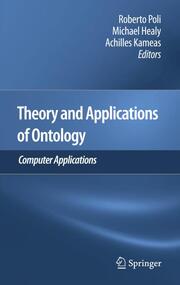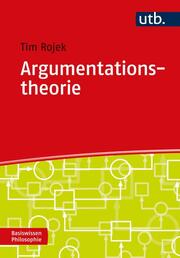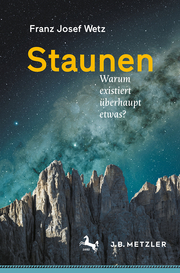Theory and Applications of Ontology: Computer Applications
Bibliografische Daten
ISBN: 9789048188468
Sprache: Englisch
Umfang: xviii, 576 S.
1. Auflage 2010
gebundenes Buch
Erschienen am
17.09.2010
Themenwelten
- Belletristik & Lyrik
- Krimi
- Kinder- und Jugendbuch
- Bilderbücher
- Familie
- E-Reader
- Hörbuch für Erwachsene
- Hörbuch für Kinder
- Reise
- Landkarten & Stadtpläne
- Kalender
- Politik & Wirtschaft
- Gesundheit
- Demenz
- Kochen
- Natur & Tiere
- Regionalia
- Körper und Seele
- Hobby & Basteln
- Humor & Nettigkeiten
- Geschichte & Kultur
- Schulbuch
- Lernhilfen
- Pädagogik
- Psychologie
- Partnerschaft & Erotik
- Fremdsprachige Literatur
- Theologie & Philosophie
- Fantasy & SciFi
- Lifestyle
- New Adult
- Influencer & Blogger
- Graphic Novel
- Manga
- Tickets
- Sprachen
- Biographien
- Sport
- Wissen
- Recht
- Beruf & Karriere
- EDV
- Fahrzeuge
gebundenes Buch
Lieferbar innerhalb 2- 3 - Wochen (soweit beim Lieferanten verfügbar)
Beschreibung
InhaltsangabeThe Interplay Between Ontology as Categorial Analysis and Ontology as Technology.- Ontological Architectures.- Organization and Management of Large Categorical Systems.- The Information Flow Approach to Ontology-Based Semantic Alignment.- Ontological Evaluation and Validation.- Tools for Ontology Engineering and Management.- Ontological Tools: Requirements, Design Issues and Perspectives.- Using the Unified Foundational Ontology (UFO) as a Foundation for General Conceptual Modeling Languages.- Lightweight Ontologies.- WordNet.- Controlled English to Logic Translation.- Cyc.- Ontological Foundations of dolce.- General Formal Ontology (GFO): A Foundational Ontology for Conceptual Modelling.- Ontologies in Biology.- The Ontology of Medical Terminological Systems: Towards the Next Generation of Medical Ontologies.- Ontologies of Language and Language Processing.- Business Ontologies.- Ontologies for E-government.- An Ontology-Driven Approach and a Context Management Framework for Ubiquitous Computing Applications.- Category Theory as a Mathematics for Formalizing Ontologies.- Issues of Logic, Algebra and Topology in Ontology.- The Institutional Approach.- Ontology Engineering, Universal Algebra, and Category Theory.
Auf die Wunschliste
160,49 € inkl. MwSt.
Autorenportrait
Roberto Poli (B.A. in sociology, with honors, Ph.D. on ontology for knowledge engineers, Utrecht) is editor-in-chief of Axiomathes (Springer), a peer-reviewed academic journal devoted to the study of ontology and cognitive systems, editor of Categories (Ontos), and member of the Academic Board of Directors of the Metanexus Institute, Philadelphia. His research interests include (1) ontology, in both its traditional philosophical understanding and the new, computer-oriented, understanding, (2) the theory of values and the concept of person and (3) anticipatory systems, i.e. system able to take decisions according to their possible future development. Poli has published four books, edited or co-edited more than 20 books or journal's special issues and published more than 150 scientific papers. He teaches Applied Ethics and Futures Studies at the Faculty of Sociology and gives a course in Ontology at the Faculty of Literature and Philosophy, University of Trento. Michael J. Healy received a B.A degree in mathematics from Eastern Washington University at Cheney, Washington in 1965 and a M.S. in mathematics from the University of Idaho in 1967. From 1967 through 2001 he worked for The Boeing Company, first as a consultant in nonlinear programming and, beginning in 1989, in research. His research spanned neural networks, machine learning, formal verification, and applications of category theory in software synthesis, knowledge based systems (KBS) engineering (KBSE), and knowledge representation and ontologies for KBS interoperability. He is now a Senior Research Scholar in the Electrical and Computer Engineering Department (ECE) at the University of New Mexico, which he joined in 2000. He continues to pursue his research interests in the semantics of neural networks, cognitive neuroscience, knowledge representation, and ontologies for systems, including computational, cognitive, and social systems. Category theory is the central ma thematical discipline for his research, with a particular focus upon categorical logic and model theory. Achilles D. Kameas received his Engineering Diploma (in 1989) and his Ph.D. (in 1995, in Human-Computer Interaction), both from the Department of Computer Engineering and Informatics, Univ. of Patras, Greece. Since 2003, he is an Assistant Professor with the Hellenic Open University, where he teaches software design and engineering. He is also the Director of Research Unit 3 / DAISy (Designing Ambient Intelligent Systems) (http://daisy.cti.gr) at the Research Academic Computer Technology Institute (CTI). Since 2007 he is Deputy Dean of the School of Sciences and Technology (SST) of the Hellenic Open University and Director of the e-Comet Lab (Educational Content, Methodologies and Technologies Lab) (http://eeyem.eap.gr). He has participated as researcher, engineer, group leader or scientific coordinator in several EU R&D projects, such as e-Gadgets, Plants, Social, Astra and Atraco. He has published over 100 journal articles, conference papers and book chapters, authored three university textbooks and co-edited more than five books.He is a member of the Advisory Board of Panorama CA and the scientific committee of the Intelligent Environments conferences; in the past he was elected in the steering boards of the Disappearing Computer network and Convivio network. His current research interests include architectures, languages and tools for ubiquitous computing systems, engineering of ubiquitous computing applications, and engineering and application of ontologies and ontology matching. He is a voting member of IEEE, IEEE CS, ACM and ACM SIGCHI. He is a member of Technical Chamber of Greece, Hellenic AI Society and Hellenic Society for the application of ICT in Education.
Inhalt
Foreword.- Introduction.- 1. The interplay between ontology as categorial analysis and ontology as technology; Roberto Poli, Leo Obrst.- 2. Ontological architectures; Leo Obrst.- 3. Organization and management of large categorical systems; Frank Loebe.- 4. The information flow approach to ontology-based semantic alignment; Yannis Kalfoglou, Marco Schorlemmer.- 5. Ontological evaluation and validation; Samir Tartir, I. Budak Arpinar, & Amit P. Sheth.- 6.Tools for ontology engineering and management; Lambrini Seremeti, Achilles Kameas.- 7. Ontological tools: requirements, design issues and perspectives; Konstantinos Kotis, George Vouros.- 8. Using the Unified Foundational Ontology (UFO) as a foundation for general conceptual modeling languages; Giancarlo Guizzardi, Gerd Wagner.- 9. Lightweight semantic web ontologies; John Davies.- 10. Wordnet; Christiane Fellbaum.- 11. Controlled English to logic translation; Adam Pease, John Li.- 12. Cyc; Douglas Foxvog.- 13. Foundational Choices in DOLCE; Stefano Borgo, Claudio Masolo.- 14. General Formal Ontology; Heinrich Herre.- 15. Ontologies in biology; Janet Kelso, Robert Hoehndorf & Kay Prüfer.- 16. The Ontology of medical terminological systems. Towards the next generation of medical ontologies; Heinrich Herre.- 17. Ontologies of language and language processing; John A. Bateman.- 18. Business ontologies; Peter Rittgen.- 19. Ontologies for e-government; Daniela Feldkamp, Knut Hinkelmann, & Barbara Thoenssen.- 20. An ontology-based context management framework for context aware ubiquitous computing applications; Christos Goumopolous & Achilles Kameas.- 21. Category theory as a mathematics for formalizing ontologies; Michael Healy.- 22. Issues of logic, algebra and topology in ontology; Steven Vickers.- 23. The Institutional approach; Robert E. Kent.- 24. Ontology engineering, universal algebra and category theory; Michael Johnson, Robert Rosebrugh. 
















